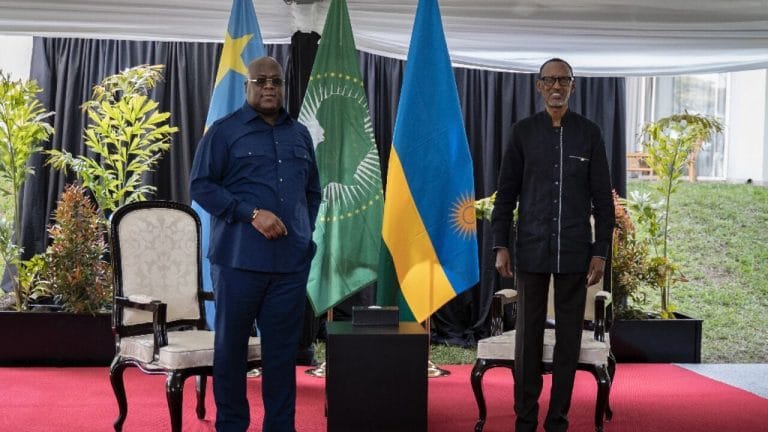Congo and Rwanda are set to sign a pivotal agreement this Friday in Washington, aimed at fostering peace, stability, and economic development in the volatile eastern region of Congo, diplomatic sources have confirmed. This deal comes in response to a violent escalation caused by the advance of Rwandan-backed M23 rebels, and signals a new diplomatic effort to end the decades-long conflict that has plagued the region.
The agreement is seen as a crucial step toward breaking the cycle of violence that has marked the strained relationship between the two nations, whose tensions are rooted in the aftermath of the 1994 Rwandan genocide. Both countries are looking to secure significant investments from the United States, particularly in Congo’s vast mineral reserves, including cobalt, copper, and lithium, essential for industries like technology and electric vehicles.
The signing ceremony, which will include U.S. Secretary of State Marco Rubio, is expected to bring together the foreign ministers of both Congo and Rwanda. The agreement reflects the U.S.’s growing interest in Congo’s mineral wealth, as Washington seeks to reduce China’s influence in the region. In parallel, Rwanda has been engaged in discussions with U.S. officials regarding potential mineral partnerships.
The conflict in eastern Congo has intensified in recent months, particularly since January 2025, when M23 rebels seized two of the largest cities in the region. While the United Nations and several Western nations have accused Rwanda of supporting M23 rebels with arms and military aid, Rwanda has consistently denied these claims, stating that its military actions are focused on self-defense and securing its borders from armed groups linked to the 1994 genocide.
Both Qatar and the U.S. have emerged as key mediators in the peace process. In March, Qatar successfully facilitated a surprise meeting between Congolese President Felix Tshisekedi and Rwandan President Paul Kagame, resulting in a joint call for a ceasefire. This was followed by direct negotiations between Congo and M23, which culminated in a statement this week expressing a mutual commitment to halt hostilities and pursue peace.
A diplomatic source has revealed that the agreement to be signed in Washington will outline broad principles for peace and economic integration in the eastern Congo region. While the specifics of the deal will be finalized in the coming months, the agreement is expected to set the stage for more concrete negotiations aimed at ending the violence and restoring normal diplomatic relations between Congo and Rwanda.
The Trump administration’s involvement in these developments stems from a recent proposal by a Congolese senator for a minerals-for-security arrangement, which has garnered significant attention from U.S. officials. Washington is particularly interested in securing greater access to Congo’s mineral resources, which have been largely controlled by Chinese companies. The U.S. hopes to partner with private sector stakeholders to unlock the potential of Congo’s mineral wealth.
Erik Prince, a prominent figure with close ties to the Trump administration, has also signaled his support for helping Congo secure its vast mineral resources and establish a more effective tax system. His involvement underscores the growing interest in Congo’s economic future and the potential for U.S.-backed ventures in the region.
As the agreement moves forward, all eyes will be on whether it can deliver a lasting resolution to the ongoing conflict and pave the way for economic prosperity in Congo and the wider region. The coming months will be critical in determining if this diplomatic push can end the cycle of violence and bring lasting peace to eastern Congo.



